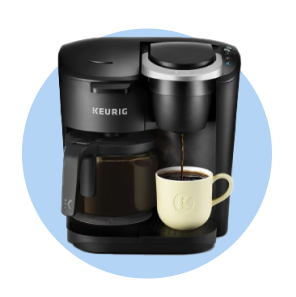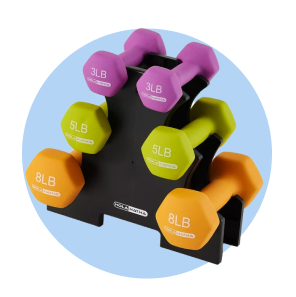
Business Security Alarm Systems: A Buyer’s Guide
No two alarms are alike
Commercial security systems are supposed to protect businesses and employees, not disrupt operations. Yet 62% of system owners will experience false alarms in a year, creating obstacles with insurers or police that owners will need to resolve.
Can these false alarms be avoided? In many cases, yes—by understanding the ins and outs of business security alarm systems before making a final purchase and properly maintaining those alarms once they’re installed. Let’s take a moment to review each type of security alarm, how they differ and what key details business owners should prioritize.
Types of business security alarm systems

Wired sensors
Wired business security alarm systems use a direct cable connection to link each sensor to a control panel. Once installed, wired systems tend to be highly efficient—the wires deliver electricity to all devices and are difficult to disrupt unless you can actually touch them. The overall complexity of the installation will vary but generally scales with the property size and the number of access points you need to secure.
However, having all of your sensors connected to the main power grid could leave you vulnerable in the event of a power outage. For extra security, consider a backup power source like a generator.
Wireless sensors
Instead of wires, wireless alarm sensors use battery-powered transmitters to communicate with a control panel. These systems are fairly common across homes and small businesses but can become inefficient within larger buildings or facilities. Wireless transmitters usually have a maximum range of 200 feet, but that number decreases if thick walls disrupt the signal. If your property is quite large, signal repeaters may be necessary to boost coverage across greater distances.
Hybrid systems
Hybrid systems, as the name implies, combine elements of wired and wireless alarm systems in some way. For example, a wired sensor might also include a battery-powered backup transmitter that activates if the power goes out at any time. Hybrid alarms can be a promising choice for facilities seeking a robust and scalable alarm system that serves them over the long term.

Monitored alarms
Monitored business security alarms are actively watched by in-house security teams or an off-site security company. When the alarm goes off, it automatically notifies a central dispatcher who can take additional actions, such as notifying a manager or calling the police. Some monitored alarms can also track onsite activity, such as employee key card use or alarm maintenance.
For large businesses, monitored systems make it easier to track alarms outside the immediate area such as those in warehouses or storage locations. Business owners can also rest easier knowing their property is being watched at all times.

Unmonitored alarms
An unmonitored alarm system is not actively tracked by off-site staff or a security alarm company. Instead, the alarm itself is what notifies staff and managers that something requires direct attention. For example, a shopping mall might have monitored alarms on entrances and exits, while a retail storefront would use unmonitored sensors to make sure products don’t leave the store without being paid for. While unmonitored alarms don’t require dispatchers, they might activate flashing lights or security doors.
Budgeting for security alarms
Next to features, the most important consideration for alarms is cost. The final price will vary depending on business size, sensor type and whether you’re installing a single camera or comprehensive security system. As a baseline, most full systems cost between $1,000 to $2,500 per business location plus $400 in installation fees. If you’re setting up a single security device—a camera or motion sensor, for example—you might pay $250 to $800 for the equipment and a control panel to operate it.
Monitoring services also have a price—most security alarm companies charge $50 to $100 per month. Just remember that monitoring will occur off-site and doesn’t reflect the full benefits of an in-house security team.
Creating a maintenance schedule
Even the most state-of-the-art alarms need regular maintenance to stay in order—sensor batteries and control panel keypads can degrade over time if you’re not careful. If you use a complete alarm system with multiple sensors, create a maintenance schedule that accounts for:
Regular alarm testing: Alarms, motion detectors and control panels can all degrade over time. Regular testing makes it easier to identify which parts to replace while keeping staff trained on system use.
Schedule battery refreshes: If you install multiple wireless sensors at once, there’s a possibility that several batteries will fail at the same time. To avoid this outcome at the wrong time, don’t wait for batteries to deplete; schedule battery charges and replacements based on the device’s lifespan to keep the entire system functioning.
Firmware updates: Wired and wireless alarm systems both use firmware to manage digital settings or connect to monitoring services. Unfortunately, this firmware can also be vulnerable to tampering. Download alarm system firmware updates as they become available to prevent anyone from discovering exploits in your system.
Looking for the right business security alarm? Walmart can help.
Choosing the right business security alarm system is a challenge, even after you’ve decided which system works best for your needs. Walmart Business can help by offering a selection of commercial-grade alarm systems. If you already have an account with us, upgrade to a Walmart Business+ membership for free shipping with no order minimum,1 free delivery from stores on orders over $352 and 2% back in Walmart Business Rewards for purchases over $250.3 You could save over $500 each year!4 Learn more here.


Limited-time offer
Unlock your special promo code
Stay informed on Walmart Business news & get $20 off a $100 purchase!1
1Minimum order of $100. Promo code can be used one time & may not be combined with other offers. Offer not transferable & void where prohibited by law. Customer responsible for all applicable taxes. Offer expires 12/31/2025 at 11:59pm PT. Further restrictions apply. See terms at checkout for details. Promo code offers available in limited quantities. While supplies last.
1 Excludes most Marketplace items, freight and certain location surcharges.
2 Restrictions apply.
3 Rewards can only be used toward future purchases on Walmart Business. Additional terms apply.
4 Savings based on 1 free $35+ delivery order vs. $9.95 fee and 1 free shipping order under $35 vs. $6.99 fee biweekly, plus 2% Walmart Business Rewards on monthly order >$250 (average value of $400).
Exciting news awaits
Hear firsthand about new products, features & promotions.
By clicking submit, you agree to receive emails about Walmart Business and acknowledge you have read and agreed to our Terms of use and Privacy Policy.










